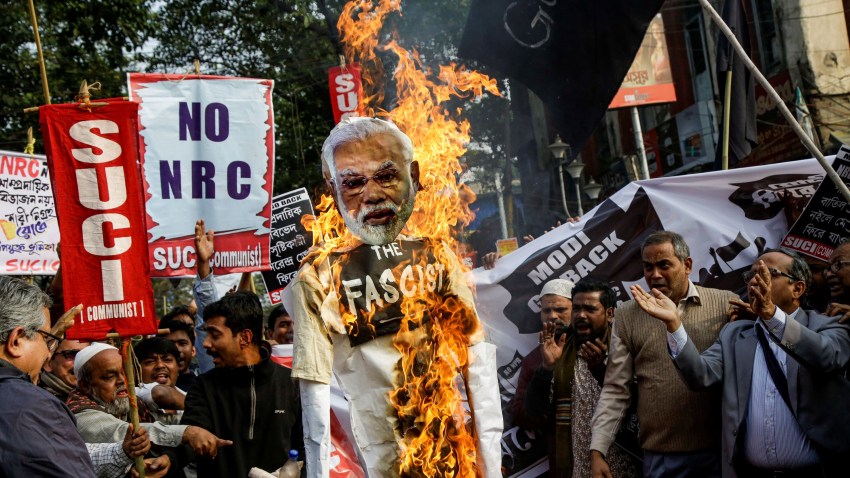India’s new Citizenship Amendment Act, which passed last month and applies to migrants from three neighboring South Asian countries, has sparked domestic unrest as well as international outrage that has reverberated beyond the region. Less than a year after winning a landslide reelection, Indian Prime Minister Narendra Modi suddenly finds his global reputation stained.
Though controversial on its own, the citizenship law has triggered such strong opposition because it epitomizes the sharp right turn Modi has taken in his second term. Since August, his government has implemented a series of divisive policies that align with long-held ideological goals of the ruling Bharatiya Janata Party’s Hindu-nationalist base but run counter to India’s secular ideals. The act, which provides fast-track citizenship to non-Muslim migrants from Pakistan, Afghanistan and Bangladesh who came to India prior to 2014, was the last straw. The Indian government argues that its intention is to provide refuge to persecuted religious minorities from these three neighboring countries, but its critics fear it is another attempt to marginalize India’s 200 million Muslim citizens.
It builds on a troubling track record. Last August, the Indian government scrapped the special autonomy of the state of Jammu and Kashmir and implemented a security clampdown there, parts of which remain in place today. The audacious step inflamed tensions with Pakistan to dangerous levels and further sullied India’s democratic and human rights record in its only Muslim-majority state.

